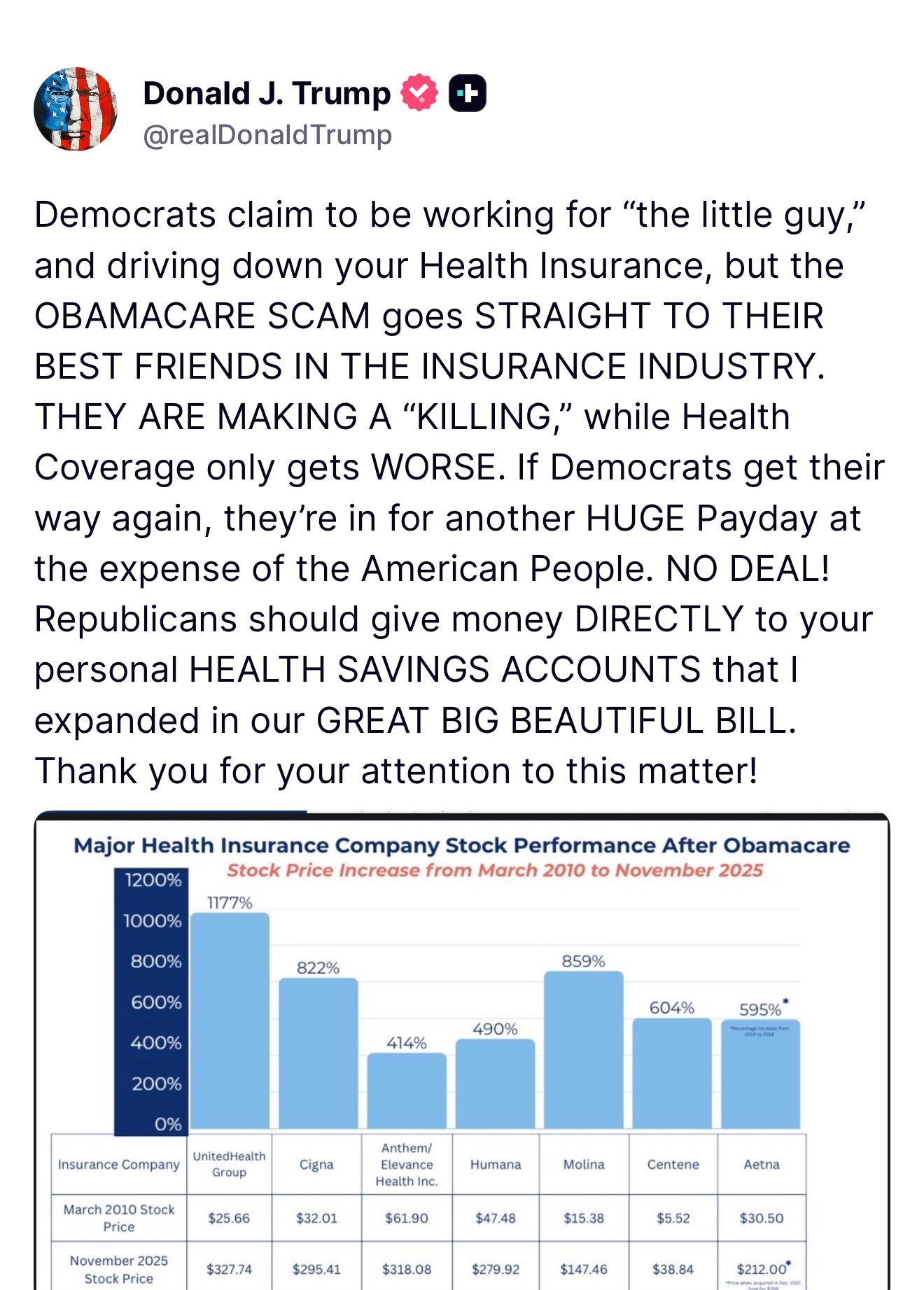Trump Criticizes Obamacare as Benefiting Insurance Companies
Former President Donald Trump has publicly condemned the Affordable Care Act, commonly known as Obamacare, labeling it a "massive scam" that primarily benefits insurance companies at the expense of American citizens. During a recent address, Trump accused Democrats of exploiting the healthcare system to enrich their allies in the insurance industry, claiming that the legislation has exacerbated healthcare issues rather than alleviating them.
Trump's remarks come as the debate over healthcare reform continues to be a contentious issue in American politics. He asserted that the current system is corrupt and has resulted in significant profits for corporations while leaving many Americans struggling with rising healthcare costs. "The Democrats are terrorizing Americans to enrich their best friends in the insurance industry," Trump stated, emphasizing his belief that the existing framework is fundamentally flawed.
In his address, Trump urged Republican lawmakers to reject any proposals that would perpetuate what he described as a "scam." Instead, he advocated for a shift in focus towards direct financial support for individuals, specifically through the expansion of Health Savings Accounts (HSAs). Trump highlighted the importance of HSAs, which he expanded during his presidency, as a means for Americans to take control of their healthcare expenses.
The former president's comments reflect a broader Republican critique of Obamacare, which has faced ongoing scrutiny since its implementation in 2010. Supporters of the Affordable Care Act argue that it has provided millions of Americans with access to healthcare and has implemented essential protections for patients. However, critics, including Trump, maintain that the system is unsustainable and disproportionately benefits insurance companies.
As the political landscape evolves, the debate over healthcare reform remains a pivotal issue for both parties. Trump's recent statements are likely to resonate with his base and may influence ongoing discussions regarding the future of healthcare policy in the United States.


